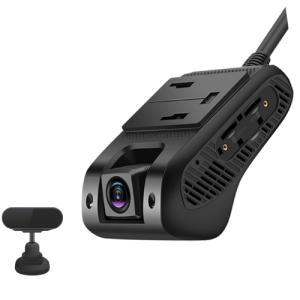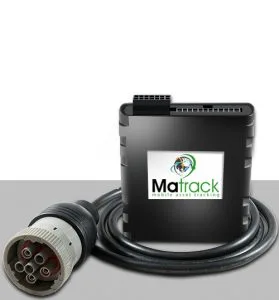The Best Safety Tools For Fleets Operators and Drivers are, GPS Trackers, Dash Cams, ELDs, Driver Scorecards, and Electronic Stability Control.
Fleet safety is important—not just for protecting vehicles but also for ensuring drivers get home safely every day. With technology constantly evolving, there are now tools that make fleet safety easier and more effective than ever before. Whether you are an operator or a driver, these tools can help lower accidents. They can also improve driver behavior and keep your vehicles in great condition.
In this blog, we’re diving into the five best safety tools that can transform your fleet into a safer, smarter operation. Let’s make the roads safer, one fleet at a time.
Parameters of Fleet Safety
Safe Driving Behavior
Monitor and control driver performance to reduce risky driving habits, route deviations, and traffic violations. This helps prevent accidents and maintain consistent driver safety standards.Real-Time Tracking
Keep track of vehicle status to respond quickly in case of an accident or emergency. Real-time tracking allows prompt actions to ensure driver safety by providing immediate assistance when needed.Maintenance Needs
Maintain vehicles in good condition to reduce the chances of breakdowns and accidents. Stay updated on potential issues and maintenance requirements, including servicing and fault records, to ensure safe vehicle operations.Resource Utilization
Ensure drivers are well-trained, efficient, and not overworked. Properly managing driver schedules reduces fatigue, enhances safety, and minimizes the risk of accidents.Driver Feedback
Use AI-driven systems to provide drivers with in-vehicle notifications about risky behavior. These systems analyze and predict risks, alerting drivers in real-time to help avoid potential accidents.5 Safety Tools for Fleet Operators and Drivers
Safety is very important in fleet management, and having the right tools can make a big difference. Here are five key tools that fleet operators should use to make driving safer, reduce accidents, and run things more smoothly.
1. GPS Trackers
Integrating GPS into fleet management tracks vehicles in real-time. Geofencing alerts managers when vehicles enter or leave specific areas, securing assets and monitoring routes. GPS tracking also reduces the risk of vehicle loss and identifies unsafe driving habits for corrective action
- Track real-time vehicle location.
- Reroute drivers to avoid traffic or bad weather.
- Prevent theft by tracking location and unusual movement.
- Monitor speeding and hard braking for safer driving.
- Send alerts during accidents for quick help.
2. Dashboard Cameras (Dash Cams)
Dash cams record footage from inside the vehicle and the road ahead, making it easy to monitor driver behavior. They analyze specific addresses of unsafe driving and reducing accident risks. Dashcams offer security even when the vehicle is parked. They record anyone who gets too close, ensuring constant protection.
- Record inside and outside vehicle footage.
- Alert drivers to avoid accidents.
- Monitor parked vehicles for suspicious activity.


3. Electronic Logging Device (ELD)
ELD tracks drivers’ hours to ensure they are getting enough rest. By automatically logging Hours of Service (HoS), ELDs help prevent fatigue-related accidents. They also track other driving metrics, like speed and engine health. This helps fleet managers see safety and compliance clearly.
- Track driver hours to prevent fatigue.
- Monitor real-time location and engine health.
- Alert for unsafe driving or engine issues.
4. Driver Scorecards
Driver scorecards evaluate drivers on safety, handling turns, and following speed limits. These scores help identify risky behavior and encourage safe driving. Managers can use scorecards to reward good drivers and motivate everyone to focus on safety.
- Measure driving behavior, like speed and braking.
- Provide feedback to fix unsafe habits.
- Reward safe driving to encourage good behavior.


5. Electronic Stability Control (ESC)
Electronic Stability Control is a system that helps drivers stay in control on tough roads. This includes wet or slippery conditions. It can apply brakes to each wheel and lower engine power to stop skidding. This keeps drivers safer in unexpected situations.
- Automatically reduce engine power and apply brakes.
- Help drivers stay in control on slippery roads
Fleet Safety Solutions by Matrack
Matrack offers tools to improve fleet safety, efficiency, and reliability. Their system provides important safety features at a good price and is available on easy-to-use apps for iOS and Android.
Matrack’s tools help track vehicles in real time, reduce risks, and protect trucks and drivers. With simple monitoring, fleet operators can make quick decisions to keep everyone safe.
Matrack GPS Tracker
Matrack GPS Tracker is a key safety tool for fleet operators. It provides real-time tracking to keep drivers safe and prevent theft. Alerts for ignition, towing, speeding, and geofence breaches let managers detect risks quickly and respond immediately. It also tracks unsafe driving habits like speeding and hard braking, allowing coaches to help drivers improve safety.
Matrack GPS Tracker also monitors vehicle health to prevent breakdowns and keep drivers safe. The user-friendly dashboard gives all the data needed for quick decisions. This helps keep fleet operations safe and vehicles well-maintained.
Matrack Dash Cam
Matrack Dash Cam is a valuable tool for fleet safety. It offers real-time monitoring of drivers and the road. It records from multiple angles, including front, rear, and inside the cab. It sends instant alerts for risky behaviors like lane changes without signaling or possible collisions, helping drivers avoid accidents.
Fleet managers can access live or recorded footage to review incidents and improve driver safety practices. The Matrack Dash Cam provides real-time alerts and easy video access. This helps reduce accidents and keeps drivers and vehicles safe.
Matrack ELD
Matrack ELD tracks drivers’ hours to ensure they get enough rest, reducing fatigue and accidents. It provides real-time alerts for Hours of Service (HoS) violations, keeping drivers compliant and safe.
The ELD also monitors speeding and hard braking, giving managers the data to correct unsafe driving habits. Matrack ELD is easy to set up. It helps small fleet operators improve safety quickly. This ensures drivers follow safe driving practices and avoid fatigue.
Conclusion
Fleet safety relies on the right tools. GPS Trackers, Dash Cams, ELDs, Driver Scorecards, and Electronic Stability Control all keep drivers safe and reduce accidents. These tools let fleet managers track vehicles, monitor drivers and react quickly when needed.
Matrack’s GPS Tracker, Dash Cam, and ELD offer simple, effective ways to boost safety. They provide real-time data and alerts so managers can prevent accidents and improve driving habits. Using these tools makes fleets safer and keeps both drivers and trucks protected.





